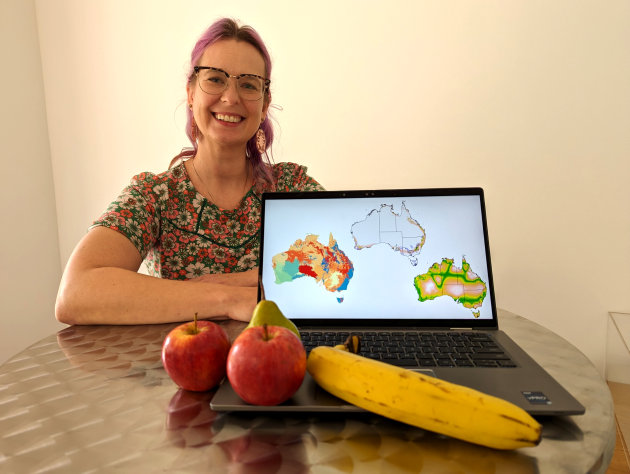Four of Australia’s peak research agencies are collaborating to develop a new isotopic data platform to support the verification of Australian agricultural and food product claims and environmental credentials.
The collaboration, co-invested with the Australian Research Data Commons (ARDC), brings together CSIRO, Geoscience Australia, the Australian Nuclear Science and Technology Organisation (ANSTO) and the National Measurement Institute (NMI) to connect disparate and siloed data into a single national collection.
Isotopes are unique chemical signatures or ‘fingerprints’ that can be used to identify where food comes from and how it was grown. Accurate isotopic data is used as evidence to verify a product’s credentials or provenance for better market access, including addressing demands for low-emission or deforestation-free commodities in Europe.

Speaking at the International Conference on Food Analysis in Melbourne, CSIRO supply chain expert Dr Nina Welti said there was a wealth of valuable public isotopic data held within each organisation that needs to be brought together to tackle Australia’s export challenges.
“Isotopes not only tell us about food production, they also help us to better understand environmental factors such as soil nutrients and groundwater flows.
“Connecting these rich databases in a way that’s trusted and shareable is key to supporting research for the public good, as well as commercial outcomes for Australia’s agriculture, food and water systems.
“It’s also about ensuring the long-term utility of data so that it can be used to build further trust in supply chains well into the future,” said Welti.
Another key driver is enabling equitable access across industry to verification tools.
Led by CSIRO through its Trusted Agrifood Exports Mission, the collaboration is connecting datasets and insights across the supply chain to improve and grow Australia’s access to overseas markets.
Agricultural and food export trade contributes about $80 billion a year to the Australian economy. Verification tools can assist Australia in maintaining key export markets, and entering new high-value markets.
For example, CSIRO undertakes greenhouse gas assessments for Australian canola to verify the product meets the European Union’s targets and is eligible to be used in biofuels.
NMI’s analytical services manager Tim Stobaus said the market demand and trade requirements for sustainable agricultural practices is increasing.
“Leveraging a stable isotope data platform can support innovation and insights to differentiate Australian products based on sustainable practices at the farm gate.
“This data can assist in the evaluation of trade-offs and decisions in terms of yield, quality and management practices so that Australian agricultural commodities can reach previously unrealised premium markets and diversify their offerings to meet changing demands,” said Stobaus.
CSIRO said use cases from industry, peak bodies, universities and other research organisations will help to inform the national digital platform’s development, ensuring it is developed in a way that’s relevant, accessible and serves the needs of different sectors.






